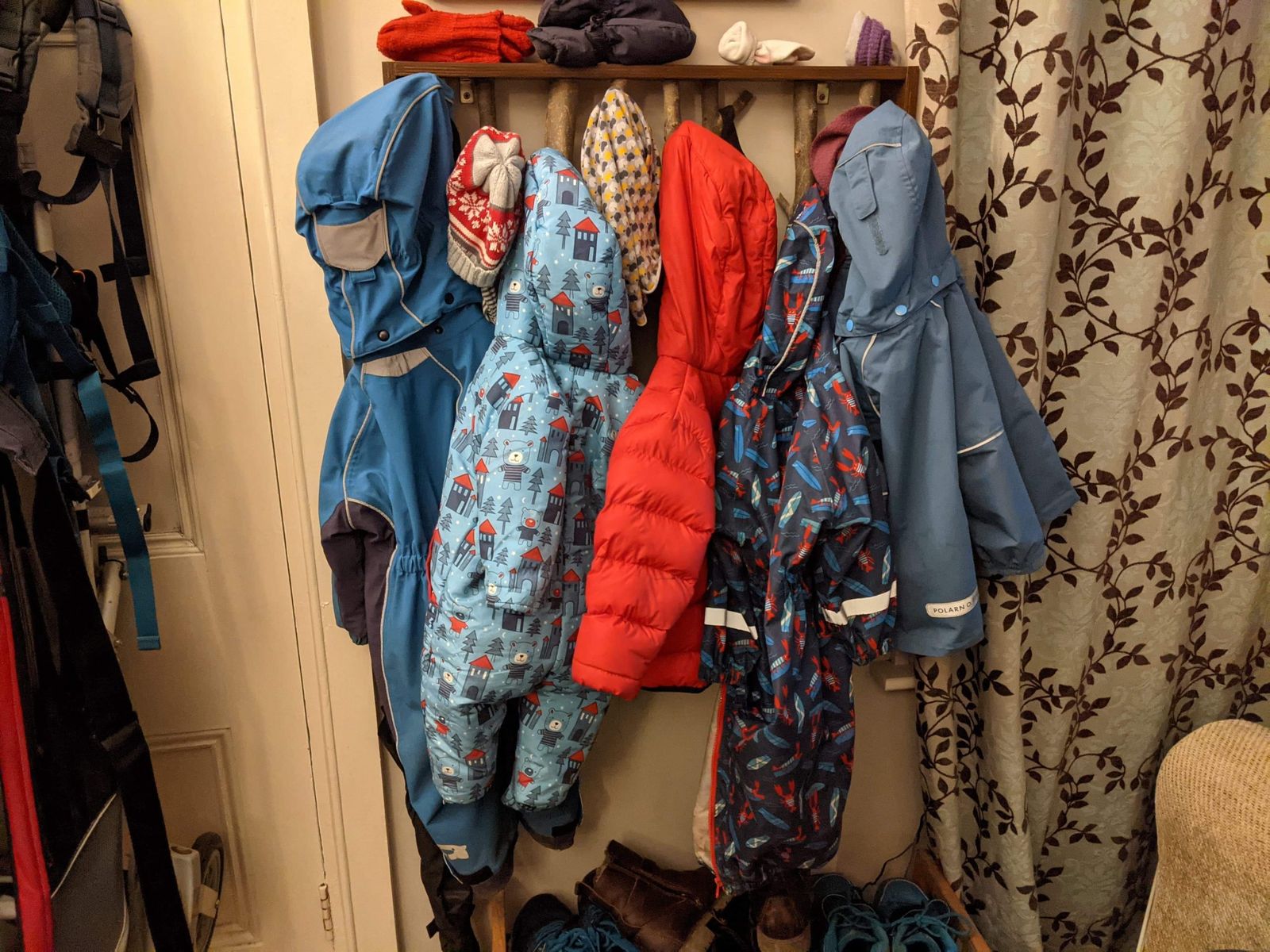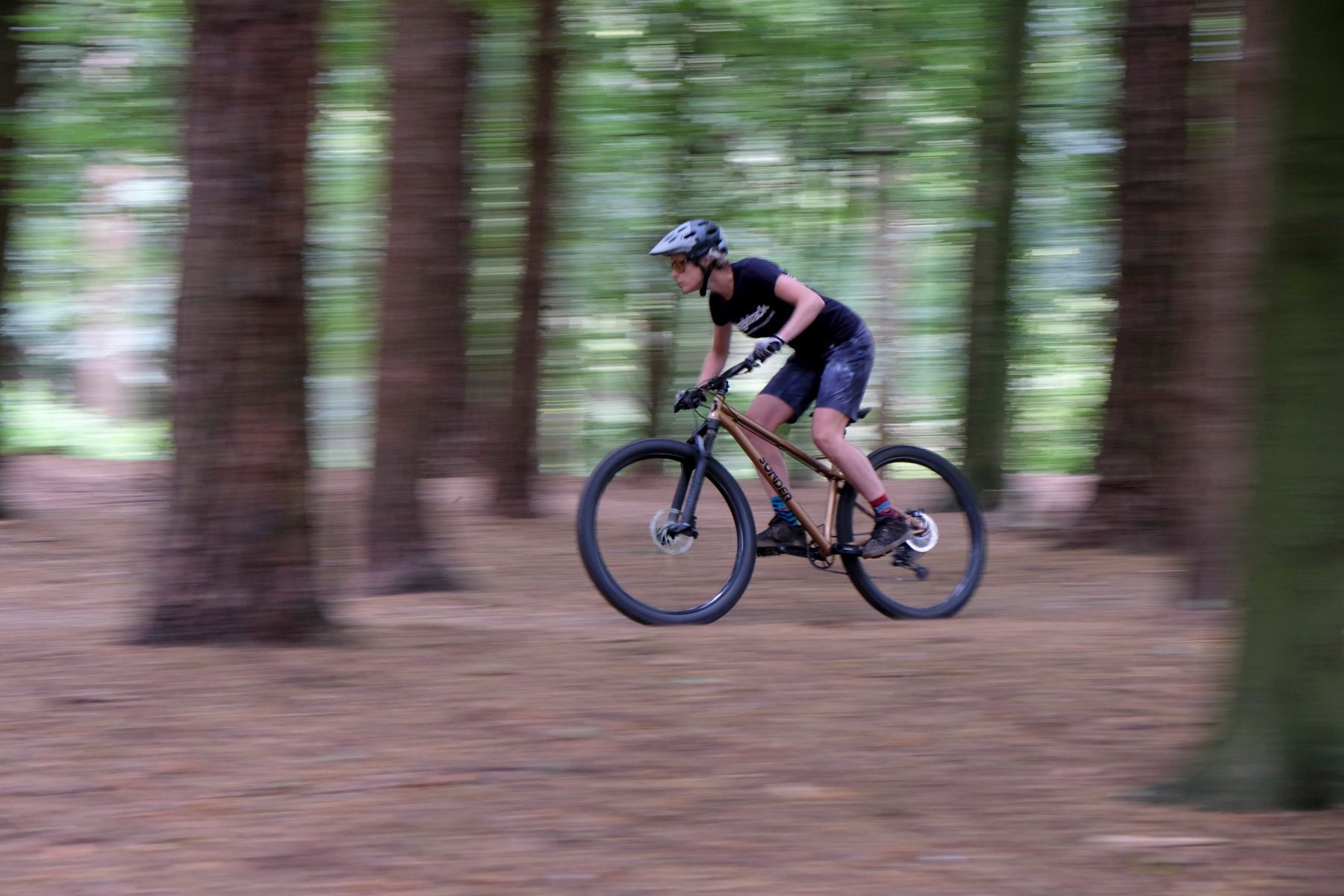Leave the ‘mum guilt’ and ‘dad guilt’ at home – check your habits and find everyone the ride time and headspace they need.
It’s International Women’s Day. In some respects, I don’t want to talk about it – it’s merely a focal point for an agenda that’s in my mind year round. With that focus comes pressure to do The Right Thing. What should the coverage look like? A celebration of amazing women? A call towards equality for all, not just women? A chance to say equality is still not achieved, and why the hell are we still talking about it instead of living it? In my view, International Women’s Day is all these things, but they are conversations that should not be constrained to a single day. Equality comes not just through high profile awareness raising, or major legal shifts, but also through the establishment of new patterns in our daily lives. There are without doubt some fantastic advocates for equality and champions of the cause who make their voices heard in places of influence – and here are our picks of who we’re being inspired by right now. We can listen to those people, learn from them, and share their messages, but in our daily lives I think there are still many small habits that we can check – and maybe change – for the better.
They say you should write about what you know, so I have been thinking about our own habits at home, particularly in the context of family life with a male and female partner. I’m going to relate these habits to getting out on bikes, because bikes is what we do, but the points are just as relevant to running, or swimming, or helping women to take part in any other exercise or sport. You’re going to find this article more relevant if you have children, but I hope that even if you don’t, thinking about these issues might help you think about how you can help your ride buddies with kids – or maybe what you’ll do if you do have your own kids one day.

Let’s start with some questions. Stay where you are, don’t move – we don’t want any cheating.
- Is your bike ready to ride?
- Could anything on it use a bit of attention, whether just a good clean or a new part?
- Is there enough milk in your fridge and bread in your cupboard to see your household through to after breakfast tomorrow?
- Is there enough dirty laundry in the basket right now to put a load on?
In households up and down the land I feel confident that you will broadly find that women (assuming they ride) can tell you the answers to all these questions. The men I would bet will fare less well on the second two – particularly in households with children. This is what is often referred to as ‘The Mental Load’: tracking the daily tasks of keeping the house and everyone in it fed, clothed and ready to function in the world around us.
Now yes, there are exceptions, and there are degrees of division of labour – I’m not saying all men don’t do anything around the house and home, just as I’m not saying all households consist of male and female parents and 2.4 children. Some households will see both partners working full time. Some will see a stay at home dad taking care of everything. But generally, in a heterosexual relationship, the woman ends up with a greater ‘mental load’ – the background tracking of daily, particularly childcare related, tasks that mean that you don’t wake up in the morning and discover you have no clean pants, or get home from a long day and find there is nothing to eat in the house, or send your child to school on a day when it’s actually a training day.
No matter how progressive and modern and egalitarian you think you are, our society has been structured around these historical norms, and it often takes conscious effort not to fall into these patterns. Interestingly, gay, lesbian, transgender and non-binary couples have been found not to fall into the same divisions of labour. Perhaps this partly because until relatively recently such partnerships didn’t openly and frequently exist and so there aren’t the same established norms leading to a pre-ordained split of roles?
What does any of this have to do with bikes, you may be wondering? The key issue here is time: to go mountain biking we need free time away from other responsibilities of work, child care and running a home.

I think it is useful to distinguish the ‘home’ tasks from the ‘child’ tasks, especially when looking at ‘how much’ everyone helps (or thinks they help) around the house. Child care is on demand, a constant moving feast of unpredictability with little scope for delay or waiting until later. Washing the dishes, fixing the gutters, cleaning the bathroom – these are all chores that need doing at some point, but they don’t require immediate attention, change their needs every few minutes, or cry loudly if they’re not met. The last year has given many of us a taste of that sense of constantly being on call, of never being able to focus on just one thing, of always juggling the needs of work and child and the dog and the work that you didn’t get done yesterday. It’s exhausting, and it makes free time all the more important. Free time is what you need to get the most from a bike ride. So how do you get it, and is everyone in your household really getting it?
The following is a list of areas where it’s easy to fall into patterns which can disadvantage the main care giver – which is (for now anyway, new paternity leave rules are beginning to shift the balance) usually the woman. By extension, that gives women less free time to get out on the trails – which means fewer women out on bikes. I invite you to ask yourself the questions, and think honestly about whether there are changes you could make. And as riding buddies, perhaps you can give some extra thought as to how you might be able to help get your female friends past some of these barriers, and out on the trails more?
How often are you actually ‘free’?
Remember that ‘work’ doesn’t have to be paid. If one of you is at work all week and the other is at home with the kids, or working part time, the chances are that the amount of ‘free’ time that either of you has in a week – time when you can actually leave the house and go and ride a bike on your own – is quite similar. Try and make sure that you recognise the need for ride time without a child in tow and work things out so that you both get it.

What is your routine, and what happens when it is disrupted?
Often a routine meet up is the best way to make sure you get out on your bike regularly – the Tuesday night ride and a pint, the Saturday morning breakfast crew. Take a look at your intended routine, and check how often it actually happens for both of you. If there’s a clash of diaries (and in normal times late running trains, extra ballet rehearsals and midweek races can cause plenty of them) who changes their plans? Try and keep that equitable, so that both partners are taking on that juggling or compromising on their down time when needed.
Are you realistic about your time?
That quick hour’s ride you had…how long did it really take once you’ve accounted for getting ready, checking your tyre pressure, having a shower after, maybe cleaning your bike? And that Saturday out you had on the bike – did it actually take a whole weekend once you consider the Friday night packing and the Sunday cleaning up and being exhausted? Did you get back in time to cook tea as you promised? When you’ve got busy lives and lots to juggle, it’s important to honour your commitments and be realistic about how much time things are going to take you away from other tasks and activities.
Are you being responsive?
Especially while there are the demands of nursing, or your children are very small, you should be prepared to be reactive. Just as you might look out the window and see the weather clearing and make a dash for the bike now, this instant, before the next rain storm, so you should be prepared to react if your partner gets the opportunity for a ride. Look! The baby is fed, its mother has eaten too, and no one has work to be at. Help her get out the door now, while the opportunity is there and before it passes. Don’t ask her a series of what ifs, or say can you just go to the loo first. Deal with whatever comes your way, just as she often has to do. Similarly, if you’re the friend she asks to join her, try and leap at the chance to be her ride buddy while the moment is there.

Do you really need to be doing this? Could someone else do it?
Particularly in the early days of parenting, and especially if you’re breastfeeding, opportunities to do anything to a plan go largely out of the window. Between pregnancy, birth, and nursing it can be easy to shift from being a couple with equal division of labour and free time, to falling into a pattern of imbalance. Once those routines are established, it takes conscious effort to shift the balance back as the immediate physical demands of growing and feeding a baby are reduced. It’s a good idea to stop and take stock of what each of you does, and whether any tasks could now be redistributed to help create ride opportunities.
Are you taking responsibility for your time?
If you’re planning a ride, what do you think about? The snacks you’ll take and whether you need an extra layer? Or do you also think about whether anyone is going to need lunch while you’re out, and what they’ll have, and whether you’ll be back in time to pick up the kids from their play date? Getting out for a ride when you’re busy can be hard enough. If your partner is heading out for a ride, try and help them get out there by taking responsibility for figuring out all the things that need doing while they’re out, so they can get on with enjoying their bike ride.

Do you need to worry about that?
The converse of the above, if you’re the one that normally takes care of something, don’t be afraid to let go – just because it’s not done exactly how you’d do it doesn’t make it wrong. Freezer food is OK. Socks don’t need to match. Safe, warm, fed and loved is what matters. Letting your partner take responsibility means accepting how they do things, including their mistakes. There might be some hiccoughs, but letting them learn will let you forget about planning and get on with riding.
Who pays?
How do you decide what you do with your disposable income? Do you cover the bills and then whatever is left over is yours to spend? Does that leave a part time or non-earner with anything meaningful to spend on themselves? Is one able to buy a whole new model year bike that they want while the other is saving up for new grips? Try ensure you are both comfortable with how you divide any spare cash.
Do bikes fit into your life?
Not too many of us are commuting at the moment, or doing a school run, but eventually we’ll be resuming all that, along with after school clubs, weekend races, and all the usual diary appointments that keep us busy. Hopefully we can carry through some of our 2020 habits and stick with home working, or keep the bike lanes to school, or ride to work – and it’s a great time to look to restructure these logistical routines to build bikes into your life. If you live in a city with some new bike lanes, maybe you can combine the school run with bikes, and keep up that online grocery delivery. Or maybe you can juggle the days you need to go into the office to divide the school run between you. ‘Journey chaining’ – where a single trip out combines a number of different tasks and locations – is one of those things that women have been found to do more than men, and that often makes riding a bike a trickier prospect. We live in a time of great change – can you take advantage of that to make bikes fit more easily into your routines?

When I’ve talked to people about finding time to ride, the recurring theme among both parents seems to be ‘guilt’. You feel guilty about being away from your family and taking time to yourself – but why should you? Adults need time out, headspace to focus on doing just one thing, or headspace to not focus on anything at all. If both adults in the house are truly getting equitable amounts of time out to do that, then there should be no guilt about it – enjoy it and return recharged to your busy household.
We’ve made great strides towards women’s equality over the years, and checking our own habits can help cement that progress. This International Women’s Day, I invite you to look to yourselves and see how you can support each other to ride truly free from other commitments. Ask yourselves the questions above, address any issues you find, and I think you will find that equality benefits everyone.
Singletrack Merch
Singletrack Sponsored Features
Featured Premier Partner
Join our mailing list to receive Singletrack editorial wisdom directly in your inbox.
Each newsletter is headed up by an exclusive editorial from our team and includes stories and news you don’t want to miss.






A marvellous thoughtful piece as ever, Hannah. I am a fortunate man and recognise how much time I stole from my wife and family over the decades while I worked. Now I am able to pay at least some of it back.
If I could write half as well as this, I’d be a happy bunny.
A lot of this rings true, particularly when the ‘erbs were young; my wife and I would each have our nights to go out and do our own thing. It’s necessary, otherwise you are in danger of feeling that you are no longer a person, just a parent. And yes, I do feel a bit guilty writing that, even though I shouldn’t.
There is always enough dirty laundry to put a load on, the question is, is it a good drying day? If so then it is a good riding day too!
Great article. With two very young children most of my riding is either on the road or in my garage when they are asleep. Perhaps it’s time, to make some time, for my mtb!
A sadly disappointing and female-biased article for the father figure in this household who works full time, carries out all the “Mental Load” tasks and much more besides, yet still finds a way to clock up 100mi+ every week only after putting everyone else first and having everyone else put me last